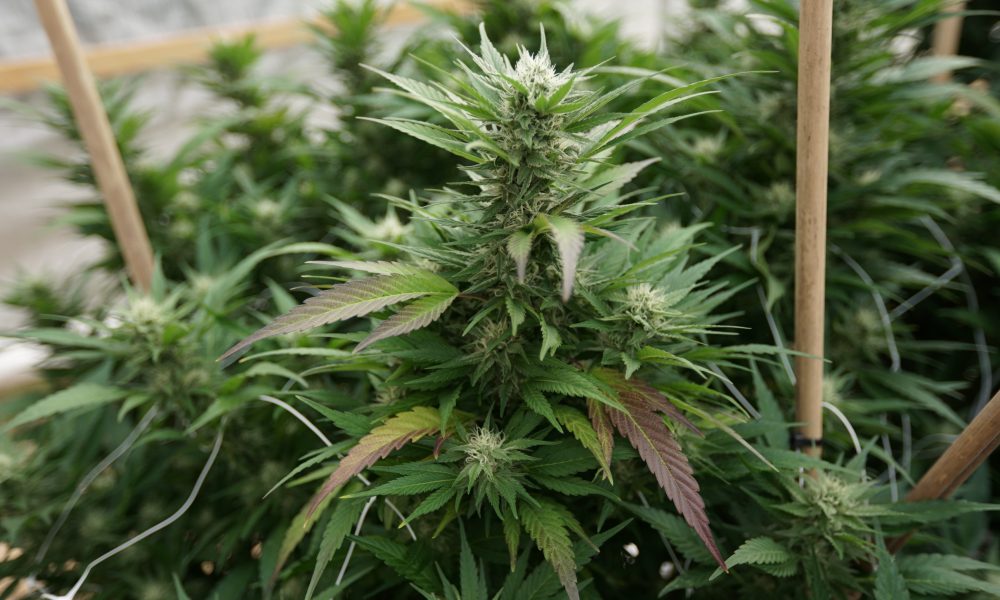“The commission should be barred from using the scores, as the scoring system appears designed to award licenses [to] applicants who just simply cannot cultivate cannabis in 60 days, as the statute mandates.”
By Alander Rocha, Alabama Reflector
A cannabis firm denied an Alabama medical marijuana license asked the Alabama Court of Civil Appeals to prevent a state commission from using prior results to award licenses.
Specialty Medical Products, a Wetumpka-based medical cannabis firm that was denied a license for an integrated facility, alleged in a motion filed on October 27 that the criteria used by evaluators are still unknown to applicants, that the commission failed to inform applicants what criteria they would be scored on in the application and that the process was not properly adopted as a rule.
“The application guide, however, does not set out the ‘minimum criteria’ for each exhibit,” the motion stated. “More importantly, the application guide fails to state what criteria are necessary to ‘exceed’ or ‘thoroughly address’ that minimum criteria.”
The company has been involved in the ongoing lawsuits, along with Alabama Always, another company denied a license.
Montgomery Circuit Judge James Anderson on November 3 denied a temporary restraining order to prevent the commission from using scores previously considered in the first two attempts to award the medical cannabis licenses.
Anderson’s order denying the temporary restraining order did not specify a reason for the denial. The judge said in previous hearings that the commission should have the discretion to use or not use the controversial scores provided by the University of South Alabama (USA).
USA brought in evaluators who reviewed the initial license applications. After the first award of licenses, the Alabama Medical Cannabis Commission (AMCC) put a pause on the process following several “inconsistencies” in scoring the applications that would have led to “catastrophic” results if the licenses were issued.
The companies asked the Alabama Court of Civil Appeals to weigh on whether a temporary restraining order should have been imposed. The restraining order would have prevented the commission from using rules issued that were not adopted in accordance with the Alabama Administrative Procedure Act. It also claims that the rules exceed the commission’s authority under the law passed legalizing medical cannabis.
“The commission should be barred from using the scores, as the scoring system appears designed to award licenses [to] applicants who just simply cannot cultivate cannabis in 60 days, as the statute mandates,” said Will Somerville, an attorney representing Alabama Always, in an statement.
The statute signed into law in 2021 states that cultivators and integrated facilities “demonstrate the ability to commence cultivation of cannabis within 60 days of application approval notification.”
According to the motion from Specialty Medical Products, the application simply asked if companies could commence cultivation within 60 days, answered with “yes” or “no,” not “demonstrate” the ability to do so.
“Dispensing with the scores is the best way to make sure patients in Alabama who can benefit from medical cannabis get the help they so desperately need,” he stated.
The AMCC in October reset the medical cannabis licensing process and said all 90 applicants were back in the running for a license. The commission rescinded all awarded licenses and denials from an August 10 meeting, which set the stage for a third round of license grants under rules adopted at a commission meeting in a previous October meeting.
The new procedures allow commissioners to use the previous scores to decide on awards and Chairman Rex Vaughn said at the meeting that commissioners had full discretion “when evaluating the suitability of all 90 applicants.”
The new rules also give applicants an opportunity to contest deficiencies identified in their application and their score results. Presentations will be open to the public. Applicants can also respond to preliminary pass/fail and submit application material that were not previously filed due to the file size limitation.
Brittany Peters, spokesperson for the commission, said they expect presentation to continue as scheduled.
Presentations will take place between November 27 and December 8. A schedule of the presentation can be found here.
This story was first published by the Alabama Reflector.
Lawmakers Meet For First-Ever Congressional Hearing On Psychedelic Therapy For Military Veterans
Photo courtesy of Chris Wallis // Side Pocket Images.
Read the full article here

